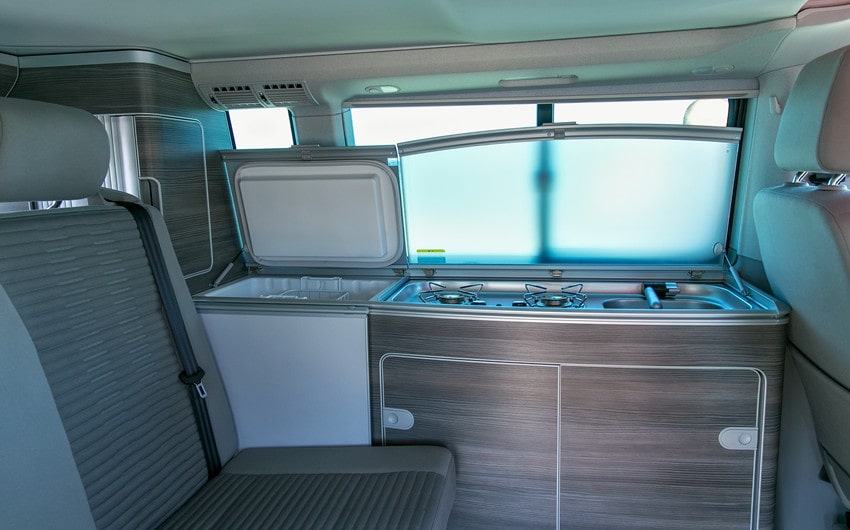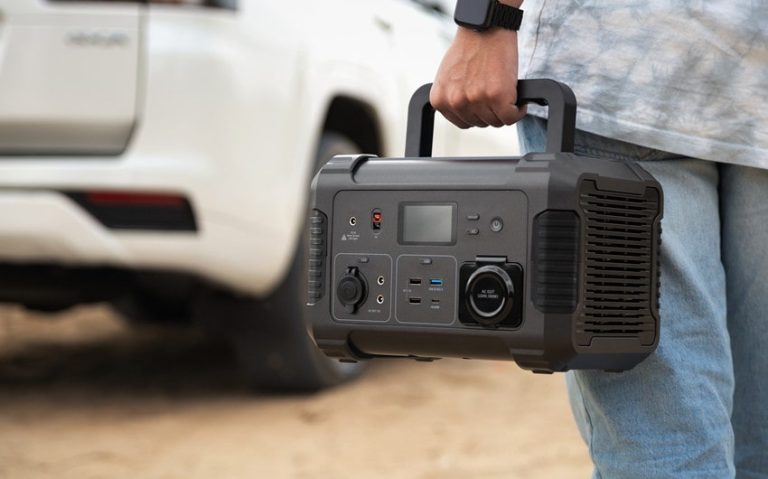Caravan Fridge Basics: What Type Is Best For Your Setup?
Getting the right fridge for your caravan isn’t just about keeping your drinks cold—it plays a massive role in how comfortable and convenient your trip feels. Be it a weekend trip or full-time traveling, the fridge will be one of the most frequently used appliances in your setup. As there are different types of fridges with other functionality in terms of power source, storage mode, and cooling efficiency, you should align the refrigerator with how you travel.
Whether it is an energy-saving compressor-based model or a low-end thermoelectric-based cooler, both are beneficial or restrictive in their ways. Off-grid adventures favor some more than others, while others shine in powered sites or mild climates.
In this guide, you will discover the most common types of caravan fridge, how they work, their advantages and disadvantages, and what sort of setup or traveler they suit most. You can then make an intelligent decision and be brave enough to hit the road.
1. 3-Way Absorption Fridges
A 3-way absorption fridge is a slightly different all-around cooling solution. A 12V battery, 240V mains, or LPG gas can power it. It is perfect for campers alternating between hookups to power up in a powered caravan park and going off-grid. Such fridges are known to be quiet (no moving parts), a good feature when sleeping beside them. They, however, are a little slow to cool and may not be enough to cause low temperatures in extremely hot climates, unlike other types.
Nevertheless, a 3-way caravan fridge remains incredibly popular despite the drawbacks due to its capacity to work without relying exclusively on electricity. This qualifies them as perfect companions on remote camping expeditions where power sources such as solar or a generator would not be dependable.
The only point to remember is that they work better when parked level- an incorrect arrangement may cause cooling problems. This is a perfect appliance if you want a single fridge that may work in various travel scenarios.
2. Compressor Fridges
The compressor fridges operate like the ones you have at home. They run off 12V DC or 240V AC power, ideal for off-grid camping when paired with a solar panel and battery system. These refrigerators cool fast, perform well even in extremely high temperatures, and operate efficiently with the current energy systems. They also maintain a temperature irrespective of the level of your caravan.
These may be noisier than absorption fridges, as the compressor turns on. Still, they are far superior when preserving perishables and maintaining a cold temperature over extended periods. They are particularly good with those who travel full-time or go to hotter regions such as the Australian Outback or summer regions. A compressor fridge is reliable if you use solar power or plan to boondock frequently.
3. Thermoelectric Coolers
Thermoelectric coolers are compact, lightweight, and inexpensive. Plug into your 12V cigarette lighter or power outlet. They have a fan system to cool items inside, but in most cases, it only reduces the inside temperature by approximately 20 °C from the ambient temperature. This implies that they will not maintain food cold on a hot day but are effective for drinks and snacks on short journeys.
You can easily take them on a weekend getaway, to a festival, or on a road trip, but not to store raw meats or dairy products over several days. They use more energy and are less energy efficient because they run all the time (no thermostat). Even then, they make a good start with a fridge for recreational travelers or a second beverage cooler on top of your wine fridge.
4. Upright Fridges
Standing fridges bring home comfort to your caravan, with vertical designs, shelves, and sometimes a separate freezer compartment. They are available in both absorption and compressor types; thus, you can match them to your power needs. Easy access and improved organization are the ultimate advantages, particularly for families or individuals traveling with a lot of food.
Upright fridges on the downside tend to occupy greater spaces and require careful packing to prevent items from shifting while driving. They can also pull a bit more power since they are bigger. However, an upright fridge may be worth the upgrade when you’re staying put for a few days or prefer to use the full view of your groceries.
5. Chest Fridges
Chest fridges have top openings and are renowned for their brilliant energy efficiency. Since cold air remains stuck as the lid is opened, they do not have as much coolness as upright designs. They are also more likely to be well-insulated and ideal for traveling off-grid, particularly with a decent solar system. The majority is based on a compressor and operates on 12V or 240V.
Their only flaw is their accessibility. You can dig through piled food and access the things at the bottom of the stack, which may be frustrating when you are not organized. Nevertheless, they perform wonders on long journeys and can pack a lot of food in a limited space. Some have been designed with removable baskets to enhance separation and are, therefore, a good option for individuals who are more focused on energy than convenience.
6. Dual-Zone Fridges
Dual-zone fridges will provide you with two worlds. Using individual compartments, such as a fridge or freezer, lets you change how you store food, either frozen meat to make later, or drinks that can be grabbed and consumed. These are more chest model compressors and have good cooling efficiency and versatility.
They are ideal when a group is larger, you will be away for a long time, or when you need storage space in both a freezer and a refrigerator simultaneously. The negative side is that they would be bulkier and also costly. Nevertheless, sometimes it is well worth the investment for serious travelers to be able to charge devices and retain that storage power, particularly when out on a trip lasting a week at a time or venturing into off-the-beaten-path locations.
Final Thoughts
When choosing a caravan fridge, consider your power configuration, how often you go camping, and your favorite camping destinations. If you are on powered sites most of the time, then a 3-way fridge will be convenient. A compressor fridge makes more sense when you are off-grid frequently and have solar. Moreover, consider your food storage requirements. Do you cook much and freeze meals, or do you need something to drink and snack on?
The budget also has a role. Casual campers with a limited budget can put thermoelectric coolers to good use, but full-timers who require utmost flexibility would find their way with dual-zone models. Regardless of your preference, your fridge must be compatible with your traveling patterns, energy sources, and storage limitations.







